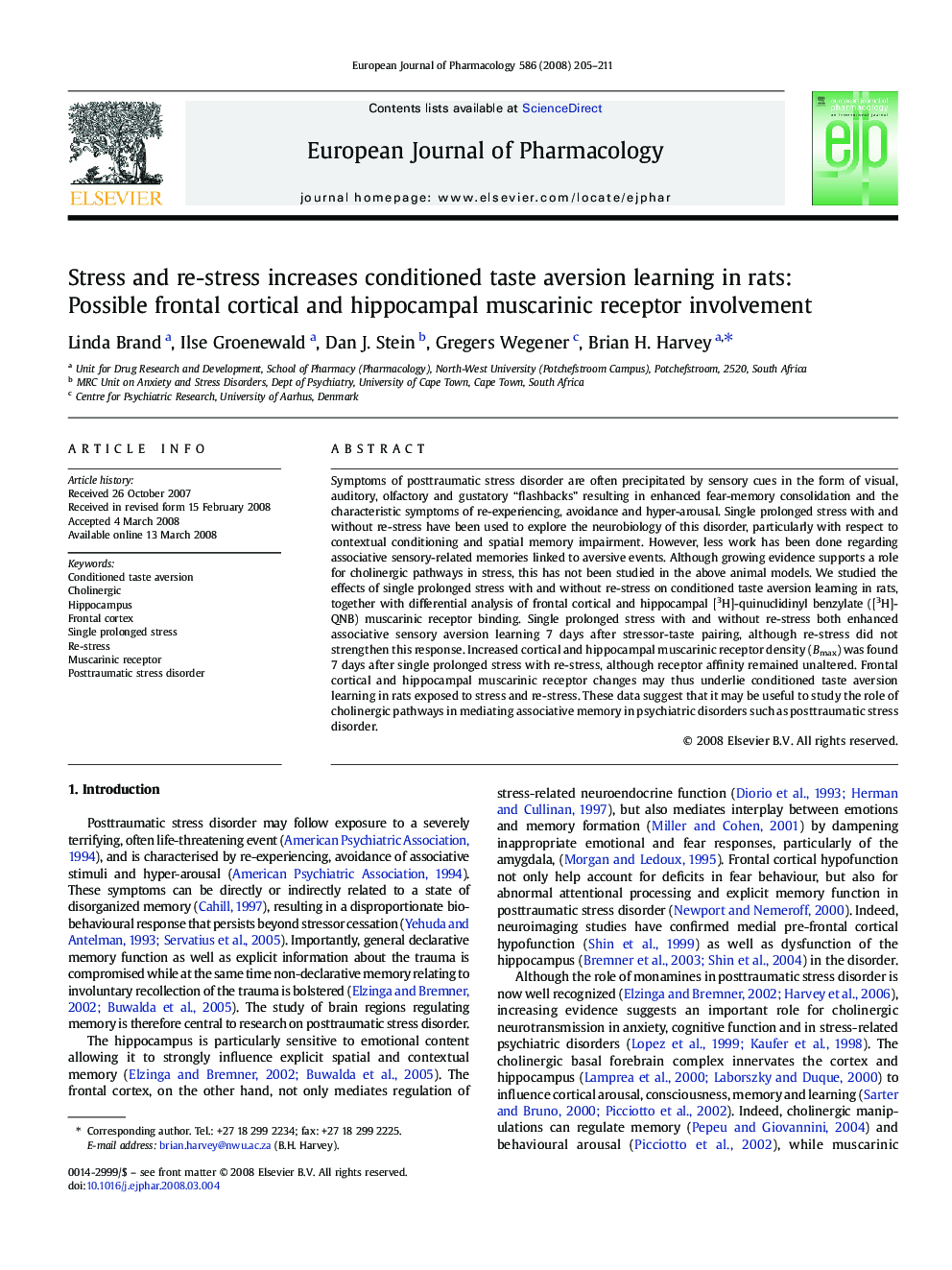| کد مقاله | کد نشریه | سال انتشار | مقاله انگلیسی | نسخه تمام متن |
|---|---|---|---|---|
| 2535260 | 1559111 | 2008 | 7 صفحه PDF | دانلود رایگان |

Symptoms of posttraumatic stress disorder are often precipitated by sensory cues in the form of visual, auditory, olfactory and gustatory “flashbacks” resulting in enhanced fear-memory consolidation and the characteristic symptoms of re-experiencing, avoidance and hyper-arousal. Single prolonged stress with and without re-stress have been used to explore the neurobiology of this disorder, particularly with respect to contextual conditioning and spatial memory impairment. However, less work has been done regarding associative sensory-related memories linked to aversive events. Although growing evidence supports a role for cholinergic pathways in stress, this has not been studied in the above animal models. We studied the effects of single prolonged stress with and without re-stress on conditioned taste aversion learning in rats, together with differential analysis of frontal cortical and hippocampal [3H]-quinuclidinyl benzylate ([3H]-QNB) muscarinic receptor binding. Single prolonged stress with and without re-stress both enhanced associative sensory aversion learning 7 days after stressor-taste pairing, although re-stress did not strengthen this response. Increased cortical and hippocampal muscarinic receptor density (Bmax) was found 7 days after single prolonged stress with re-stress, although receptor affinity remained unaltered. Frontal cortical and hippocampal muscarinic receptor changes may thus underlie conditioned taste aversion learning in rats exposed to stress and re-stress. These data suggest that it may be useful to study the role of cholinergic pathways in mediating associative memory in psychiatric disorders such as posttraumatic stress disorder.
Journal: European Journal of Pharmacology - Volume 586, Issues 1–3, 31 May 2008, Pages 205–211